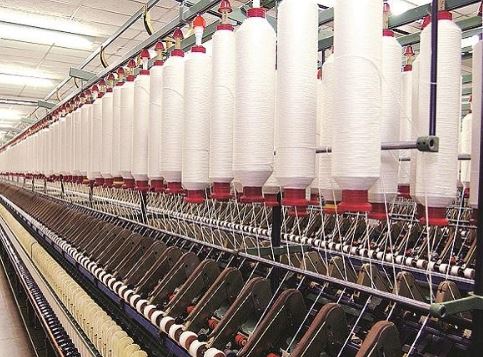
The Role of Gears and Gearboxes in the Textile Industry
The textile industry is a dynamic sector that involves the manufacturing of fibers, fabrics, and various textile products. Within this industry, gears and gearboxes are essential components used in textile machinery to facilitate efficient production processes. Gears enable the transmission of power and motion, while gearboxes provide speed control and torque conversion. In this blog post, we will explore the significance of gears and gearboxes in the textile industry.
1. Power Transmission: Gears and gearboxes play a crucial role in power transmission within textile machinery. From spinning machines to weaving looms, gears are responsible for transmitting power from the motor to various components, such as spindles, rollers, and shafts. They ensure that the necessary rotational motion is efficiently transferred to drive the production process. Gears help maintain consistent speed and torque, resulting in uniform and high-quality textile output.
2. Speed Control: Speed control is vital in textile manufacturing to achieve desired results and maintain product quality. Gears and gearboxes enable speed control by providing different gear ratios. By changing gears, textile machinery can operate at various speeds, accommodating different fabric types, yarn thicknesses, and production requirements. Gearboxes allow operators to adjust the rotational speed of critical components, ensuring precise control over the manufacturing process.
3. Torque Conversion: Textile machinery often requires torque conversion to handle different types of fabrics and manufacturing stages. Gears and gearboxes facilitate torque conversion by adjusting the rotational force transmitted to the components. They allow textile machines to generate the appropriate level of torque for specific tasks, such as yarn winding, fabric stretching, or thread tensioning. The ability to convert torque efficiently enhances the overall performance and productivity of textile machinery.
4. Durability and Reliability: Textile manufacturing involves repetitive and demanding operations, subjecting machinery to significant stress and wear. Gears and gearboxes designed for the textile industry are built to withstand these challenging conditions. They are manufactured with high-quality materials and precision engineering to ensure durability and reliability. Proper lubrication and maintenance of gears and gearboxes contribute to extending their lifespan and minimizing downtime in the production process.
5. Customization and Specialized Applications: The textile industry encompasses a wide range of processes and applications, each with its unique requirements. Gears and gearboxes can be customized to meet specific needs, such as different gear profiles, sizes, or materials. This flexibility allows textile manufacturers to optimize their machinery for specialized applications, such as knitting, dyeing, or fabric finishing. Customized gears and gearboxes ensure precise control, efficiency, and consistency throughout the textile production cycle.
Gears and gearboxes are indispensable components in the textile industry, enabling power transmission, speed control, torque conversion, durability, and reliability in textile machinery. Their role in facilitating efficient production processes and maintaining product quality cannot be overstated. As the textile industry continues to evolve, advancements in gear and gearbox technology will further enhance productivity, customization, and sustainability, contributing to the growth and innovation of this dynamic sector.
